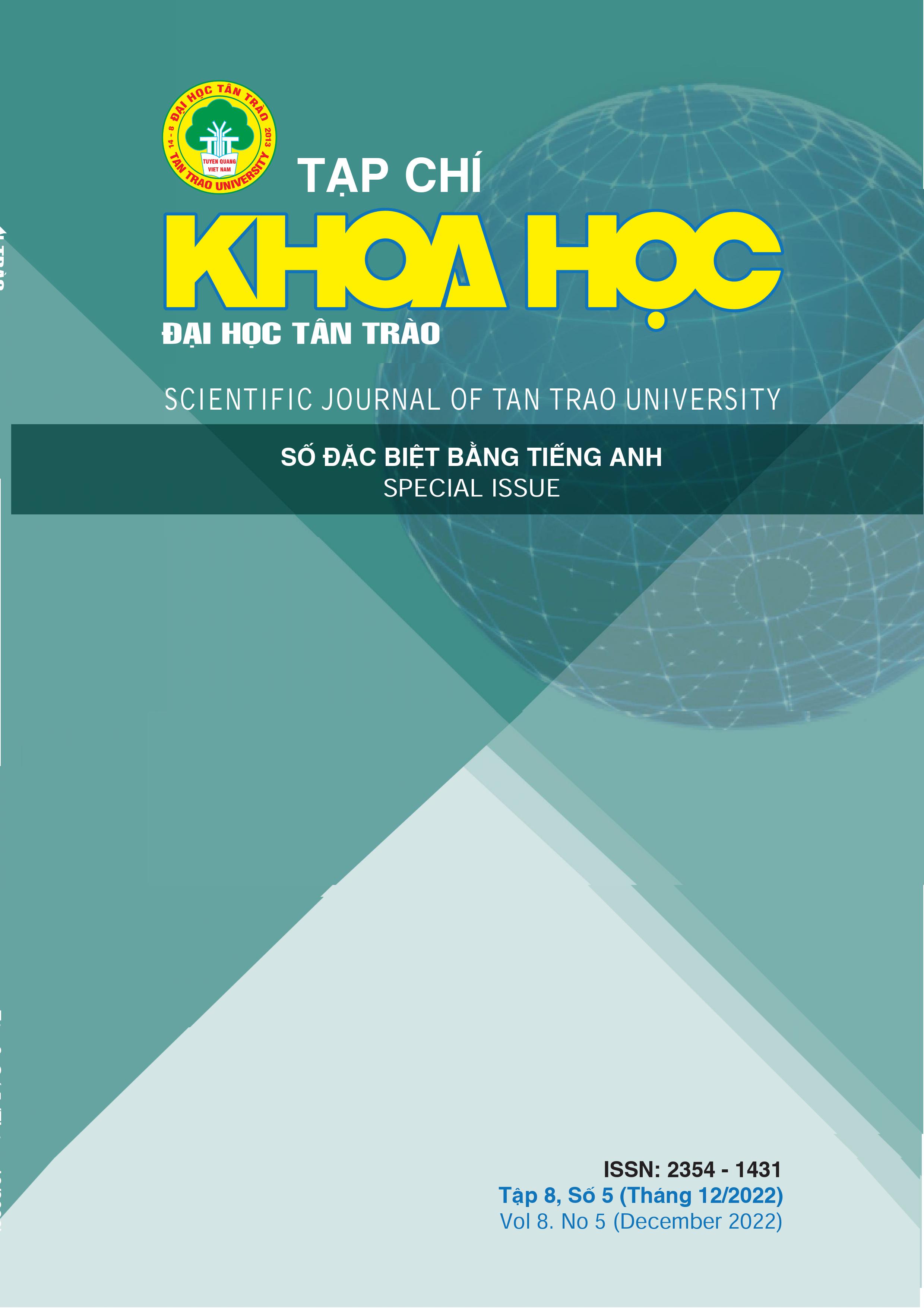ĐỊNH KIẾN GIỚI ĐỐI VỚI VỊ TRÍ CỦA NHÀ KHOA HỌC NỮ TRONG GIA ĐÌNH VÀ Ở NƠI LÀM VIỆC
DOI:
https://doi.org/10.51453/2354-1431/2022/865Từ khóa:
Định kiến giới; vị trí; nhà khoa học nữ; gia đình; nơi làm việc.Tóm tắt
Dựa trên kết quả khảo sát định lượng của đề tài “Định kiến giới đối với phụ nữ trong lĩnh vực khoa học và công nghệ” do Học viện Phụ nữ Việt Nam thực hiện năm 2021, bài viết phân tích định kiến giới về vị trí của nhà khoa học nữ trong gia đình và nơi làm việc. Kết quả nghiên cứu cho thấy, định kiến đối với vị trí của nhà khoa học nữ trong gia đình và ở nơi làm việc ở mức độ trung bình. Tuy nhiên, vẫn tồn tại ở một bộ phận người trả lời các quan niệm định kiến về vị trí của nhà khoa học nữ trong gia đình như là người giữ lửa, giữ gìn hạnh phúc gia đình; đặt gia đình lên trên sự nghiệp và ở vị trí hỗ trợ chồng thành công hơn là coi trọng sự nghiệp của riêng mình. Bên cạnh đó, nhóm nghiên cứu còn nhìn thấy một số định kiến đối với vị trí của nhà khoa học nữ ở nơi làm việc như: nữ phù hợp với vị trí chuyên môn, nam phù hợp với vị trí lãnh đạo công tác chuyên môn; nữ phù hợp với các công việc chuyên môn hơn là giữ các chức vụ quản lý; nữ phù hợp với cấp phó hơn là cấp trưởng, đặc biệt trong các lĩnh vực khoa học tự nhiên, kỹ thuật và công nghệ.
Tải xuống
Tài liệu tham khảo
/[1] Ministry of Science and Technology, CSIRO’s Data61. (2021). Report on Technological Innovation in Vietnam - Assessing the impact of technology on economic growth.
/[2] Ha T. (2015). Celebration of 105 years of International Women's Day and 1975 year of Hai Ba Trung Uprising. Website: http://www.vast.ac.vn/tin-tuc-su-kien/tin-vien/2231-le-ky-niem-105-nam-ngay-quoc-te-phu-nu-va-1975-nam-khoi-nghia-hai-ba-trung.
/[3] Hong, T.T., Minh, N.H., Loan, T. T. (2018). Female cadres participating in scientific research at the Vietnam Academy of Social Sciences. Journal of Family and Gender Studies, 28(1), 61-72.
/[4] Rafael C., Matteo G., Ezequiel T. (2014). Women in science and technology: What does the literature say? Technical Note No.IDB-TN-637. Inter-American Development Bank.
/[5] Suter, C. (2006). Trends in gender segregation by field of work in higher education. University of Neuchatel Switzerland.
/[6] OECD. (2008). Encouraging Student Interest in Science and Technology Studies. Paris: OECD Publishing.
/[7] Erica, S. W., Amanda, B. D. (2017). Making STEM “family friendly”: The impact of perceiving science careers as family- compatible.
/[8] Ha, N.T.T., Hà, L.S., Vân, L.T.T. (2015). Research on gender stereotypes towards female leaders at all levels in the period of Doi Moi and international integration. Hanoi: Social Science Publishing.
Tải xuống
Đã Xuất bản
Cách trích dẫn
Số
Chuyên mục
Giấy phép

Tác phẩm này được cấp phép theo Giấy phép Quốc tế Creative Commons Attribution-ShareAlike 4.0 .
Bài báo được xuất bản ở Tạp chí Khoa học Đại học Tân Trào được cấp phép theo giấy phép Ghi công - Chia sẻ tương tự 4.0 Quốc tế (CC BY-SA). Theo đó, các tác giả khác có thể sao chép, chuyển đổi hay phân phối lại các bài báo này với mục đích hợp pháp trên mọi phương tiện, với điều kiện họ trích dẫn tác giả, Tạp chí Khoa học Đại học Tân Trào và đường link đến bản quyền; nêu rõ các thay đổi đã thực hiện và các nghiên cứu đăng lại được tiến hành theo cùng một bản quyền.
Bản quyền bài báo thuộc về các tác giả, không hạn chế số lượng. Tạp chí Khoa học Tân Trào được cấp giấy phép không độc quyền để xuất bản bài báo với tư cách nhà xuất bản nguồn, kèm theo quyền thương mại để in các bài báo cung cấp cho các thư viện và cá nhân.
Mặc dù các điều khoản của giấy phép CC BY-SA không dành cho các tác giả (với tư cách là người giữ bản quyền của bài báo, họ không bị hạn chế về quyền hạn), khi gửi bài tới Tạp chí Khoa học Đại học Tân Trào, tác giả cần đáp ứng quyền của độc giả, và cần cấp quyền cho bên thứ 3 sử dụng bài báo của họ trong phạm vi của giấy phép.






